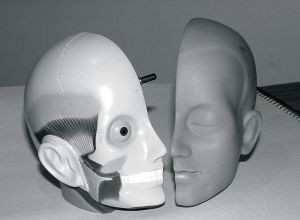In the past 10 to 15 years, doctors and researchers have made a lot of progress in treating traumatic brain injury. One of the main reasons for this was because of the wars in Iraq and Afghanistan. Unlike in previous wars in which the United States has been engaged, our military had the technology to get wounded soldiers, sailors, and civilians off the battlefield and to a medical treatment facility, despite grievous injuries.
 Much of these medical evacuations from the battlefield were due to the brave and amazing work of United States Air Force Pararescue Jumpers (PJs) and their counterparts in other branches of the military. In the past, a soldier who suffered a massive head injury was likely given morphine by a medic or hospital corpsman and died on the battlefield. Today, the military is able to get them to a combat support hospital, and then via airlift to a level one trauma center in Germany within a matter of hours.
Much of these medical evacuations from the battlefield were due to the brave and amazing work of United States Air Force Pararescue Jumpers (PJs) and their counterparts in other branches of the military. In the past, a soldier who suffered a massive head injury was likely given morphine by a medic or hospital corpsman and died on the battlefield. Today, the military is able to get them to a combat support hospital, and then via airlift to a level one trauma center in Germany within a matter of hours.
This means many more people have survived a serious head injury. This also means many more people have to live with the effects of a traumatic brain injury, and for doctors as well as patients, this is a relatively new phenomenon. While there is more known about the effects of a traumatic brain injury (TBI), than ever before, there is clearly still a lot left to learn. This doesn’t only apply to traumatic brain injuries caused in the warzone, but also those that result in more typical Boston personal injury cases.
According to a recent news article from WebMD, one of the main problems suffered by victims of a traumatic brain injury is difficulty sleeping even years after the injury. One of the more difficult aspects of these sleeping disorders is that the patients may not even be aware of the issue and may have daytime sleepiness as symptom of the problem. This typically occurs for as much as year and half following the accident.
In the United States alone, nearly 2 million people will suffer from a traumatic brain injury each year and many of these people are believed to be suffering from these residual sleep disorders. However, there is a great deal of difficulty diagnosing these patients again, because many of them think they are sleeping at night. It is not that they are sitting awake in bed at night, but they are not able to get restful sleep, as we often see with patients who suffer from obstructive sleep apnea. This is what contributes to the daytime sleepiness that can be difficult and dangerous, especially when driving.
This type of future medical expense following a traumatic brain injury is only one of the many future medical expenses we typically see in these types of cases. It is not uncommon for there to be hundreds of thousands if not over a million dollars in future medical expenses, as well as lost wages and other types of personal injury damages. However, this is not always the case and you should speak with your personal injury lawyer about the facts relevant to your particular injury.
If you are injured in an accident in Boston, call Jeffrey Glassman Injury Lawyers for a free and confidential appointment — (617) 777-7777.
Additional Resources:
Sleep Doesn’t Come Easy After a Brain Injury, April 26, 2016, WebMD, By Steven Reinberg
More Blog Entries:
Wilkins v. City of Haverhill – Massachusetts Supreme Court Weighs Slip-and-Fall Claim, May 23, 2014, Boston Personal Injury Attorney Blog
 Boston Personal Injury Attorney Blog
Boston Personal Injury Attorney Blog

